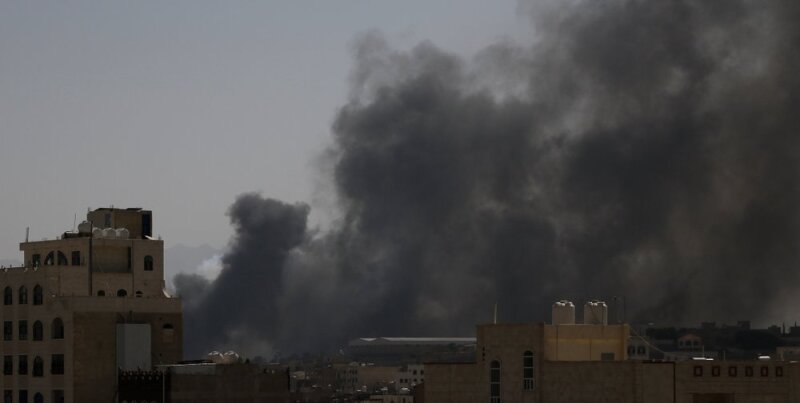Oil prices remained elevated on 8 March as Saudi Arabian oil facilities were targeted by drone strikes just days after the largest crude exporting nations in the world said they would not increase output.
Brent crude, the international standard, surpassed $70 per barrel for the first time in more than a year. Even after it lost ground in afternoon trading, at $68.19 a barrel prices are still hovering at levels not seen since the early days of last year.
Benchmark US crude oil also gave up early gains, but, at $65 per barrel, it’s up 12% over just the past month.
Crude prices have surged more than 30% this year as massive vaccinations campaigns gain momentum, potentially signaling the beginning of the end of a global pandemic.
The attacks in Saudi Arabia follow a devastating winter freeze in Texas and other parts of the southern United States last month knocked out production of roughly 4 million barrels per day of US oil, pushing prices above $60 a barrel for the first time in more than a year.
The threats to the global oil supply are taking place with economists expecting energy demand to surge as nations recover from the pandemic.
In that environment, many energy analysts had expected the OPEC cartel and its allies to lift more restrictions and let the oil flow more freely. But OPEC, rattled by plunging prices over the past year, chose not to open the spigots, sending prices higher still.
The strikes on Saudi sites have increased in frequency and precision in recent weeks, raising concerns about Saudi Arabia’s air defenses and the expanding capabilities of the Iran-backed rebels across the border in Yemen.
A Saudi-led coalition launched an air campaign on war-torn Yemen’s capital and on other provinces on 7 March in retaliation for missile and drone attacks on Saudi Arabia that were claimed by the Iranian-backed rebels.
The official Saudi Press Agency quoted an anonymous official in the Ministry of Energy as saying that a drone flew in from the sea and struck an oil storage site in Ras Tunura, the port run by Saudi Arabia’s state oil company, Aramco.
It claimed the strike did not cause any damage. Saudi Aramco, the kingdom’s oil giant that now has a sliver of its worth traded publicly on the stock market, did not immediately respond to a request for comment.

